MORE PRAISE FOR THE HEBREW GODDESS
Engaging, wide-ranging, and thought-provoking
Parabola
Raphael Patai wrote his book well before the rise of Jewish feminism. It will undoubtedly be welcomed by the advocates of that view of Jewish life.... It stands as an exquisite example of intellectual pioneering which opens up broad vistas for all students of Judaism.
Midstream

In the beginning God created...
This God is the Supernal
Mother who rides and rises
with a triumphant shout.
(Tiqqune haZohar, 47a)
JEWISH FOLKLORE AND ANTHROPOLOGY
GENERAL EDITOR
Raphael Patai
ADVISORY EDITORS
Daniel Ben-Amos
University of Pennsylvania
Jane Gerber
City University of New York
Barbara Kirshenblatt-Gimblett
YIVO Institute for Jewish Research
Gedalya Nigal
Bar Ilan University
Aliza Shenhar
University of Haifa
Amnon Shiloah
Hebrew University

THIRD ENLARGED EDITION
Foreword by William G. Dever
 Wayne State University Press Detroit
Wayne State University Press Detroit
Copyright 1967, 1978 by Raphael Patai. Third enlarged edition copyright 1990 by Wayne State University Press, Detroit, Michigan 48201. Originally published by KTAV Publishing House, Inc. and Avon Books.
All rights are reserved. No part of this book may be reproduced without formal permission.
ISBN 978-0-8143-3821-6 (e-book)
The Library of Congress has catalogued the hardcover edition as follows: Patai, Raphael, 1910
The Hebrew Goddess; foreword by Merlin Stone / Raphael Patai.
p. cm.(Jewish folklore and anthropology)
Includes bibliographical references.
ISBN 0-8143-2221-2 (alk. paper).ISBN 0-8143-2271-9 (pbk.: alk. paper).
1. Myth in the Old Testament. 2. Mythology, Jewish. 3. Mother-god-dessesPalestine. 4. CabalaHistory. I. Title. II. Series.
BS1183.P38 1990
Done with the assistance of a Fund established by
Thelma Gray James of Wayne State University
for the publication of Folklore and English Studies.
A complete listing of the books in the Raphael Patai series in Jewish Folklore and Anthropology can be found online at wsupress.wayne.edu

CONTENTS

FOREWORD
When Raphael Patais book The Hebrew Goddess was published in 1967, there was not a single scholar anywhere in the fields of biblical studies, archaeology, or comparative religion who would have posited the existence of a female consort alongside Yahweh, the God of Israel. Most readers, even if intrigued by the title, would have been skeptical of the books claims. After all, we knew that ancient Israelite religion was rigidly monotheistic, so much so that we did not even have any tangible symbols of the deity. Conventional wisdom in the 1960s was that Israel was unique in the ancient world precisely because of its monotheistic, aniconic religion.
It is only by placing The Hebrew Goddess into this broader context that we can appreciate how truly revolutionary it was at the time of its first appearance, and indeed for decades thereafter. Although Raphael Patai had earned two doctorates, he was not your typical specialist, immersed in one narrow academic field. Rather, he was a polymath: multi-lingual (he knew seventeen languages, ancient and modern), multi-cultural, well-read, and at home in almost any branch of the humanities. Born in Budapest in 1910, he was the sort of old-fashioned European intellectual that one no longer encounters, a man of letters.
In 1933, Raphael Patai emigrated to Palestine; he was the very first student to be awarded a doctorate from the Hebrew University of Jerusalem, in 1936. In the course of his long and distinguished career, first in Palestine, where he was instrumental in establishing Jewish folklore and ethnology as a vital field, and then, as of the late 1940s, in New York, where he lived until his death in 1996, Raphael Patai published dozens of books and hundreds of articles in areas such as Jewish and Arab history and culture, biblical studies, mythology, folklore, and the anthropology of the Middle East. In his late 70s and early 80s, he wrote, among other books, several autobiographical volumes, and, persisting in his lifelong passion for scholarship, he embarked on an entirely new project, which took him to libraries and archives all over the world and resulted in the book The Jewish Alchemists: A History and Source Book (1994). At the time of his death, he had recently published a book called The Jews of Hungary: History, Culture, Psychology (1996). His final three books, on three different subjects, all appeared posthumously: Jadid al-Islam: The Jewish New Muslims of Meshhed (1997); The Children of Noah: Jewish Seafaring in Ancient Times (1998); and Arab Folktales from Palestine and Israel (1998). In addition, he left behind an immense project, begun in the last few years of his life, an encyclopedia of Jewish folklore. Only now is it nearing completion, under the general editorship of Israeli folklorist Haya Bar-Itzhak, who enlisted the collaboration of an international team of scholars.
To appreciate how far ahead of his time Raphael Patai was, I recently went over the literature on a Hebrew Goddess at the time he wrote the first edition, then compared that with what has been written in the years after The Hebrew Goddess first appeared. The result was compelling: There was nothing at all on this subject when Patai first wrote The Hebrew Goddess. Since then, however, at least 15 volumes have been published on what has come to be known as folk religion, many of these books acknowledging at last the Hebrew Goddess Asherah. Summaries of most of these works appear in my 2005 book, Did God Have a Wife?: Archaeology and Folk Religion in Ancient Israel, which quotes The Hebrew Goddess extensively. In my own field of archeology, the trend toward a new appreciation of popular religion began with my 1984 article, Asherah, Consort of Yahweh?, followed by a book by leading Biblical scholar Saul Olyan, Asherah and the Cult of Yahweh in Ancient Israel (1988). In the third, enlarged edition of The Hebrew Goddess, published in 1990 and now reprinted, Dr. Patai was able to list and consult my article, and I am deeply honored that it met with his approval.
But Raphael Patai originally wrote this book well before any information about or interest in the subject of a Hebrew Goddess was apparent. Had he lived only a few more years, he would have found all his prescient views fully confirmed.
A true pioneer, Raphael Patai brought a depth and daring to the study of folk religion that was unique at the time, and even now has not been surpassed.
William G. Dever

Next page
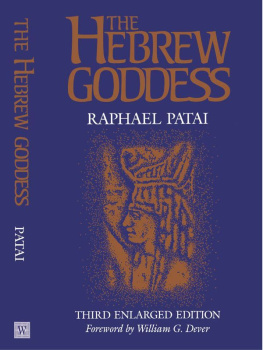

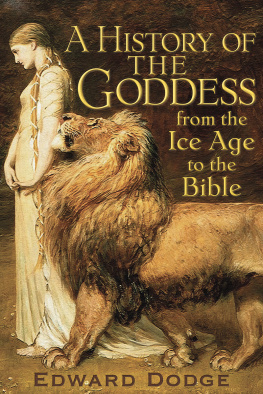
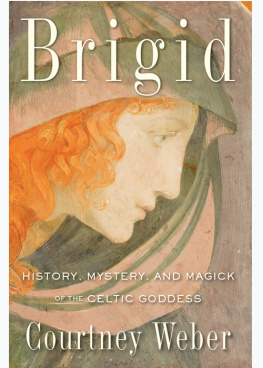
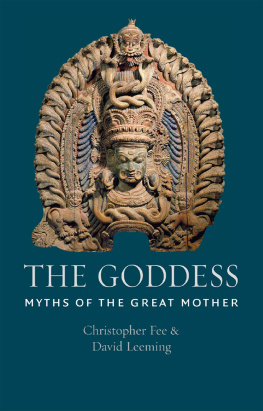
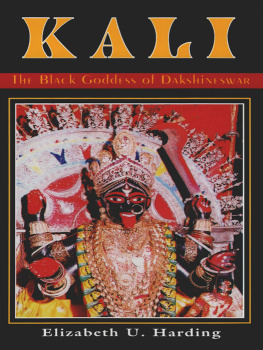
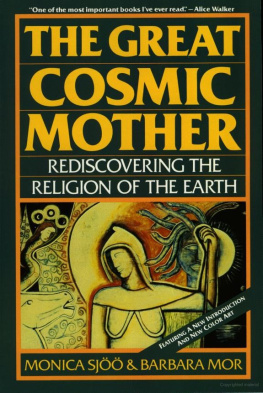


 Wayne State University Press Detroit
Wayne State University Press Detroit